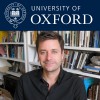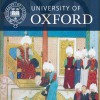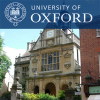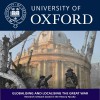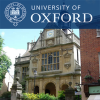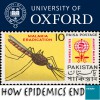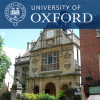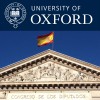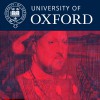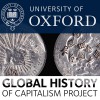Faculty of History

Most of the experience of humanity is contained in the past. Medieval and modern history has been studied at Oxford for longer than at almost any other university: a Regius Professor of Modern History was first appointed in 1724, and undergraduate examinations began in 1850.
Today the University is one of the world's most encompassing centres for the study of history. The faculty has about a hundred permanent teaching staff, nearly twelve hundred undergraduates, and almost five hundred graduate students attracted from many countries. Historians also abound in other departments. At their service is the Bodleian library and its ancillaries, which count among the greatest of research collections.
They work and live in forty-five college communities, in buildings ranging from honey-coloured medieval quads, to the most controversial of post-modernist architecture, all set within the lively, thriving, and beautiful city of Oxford.
Series associated with Faculty of History
| # | Episode Title | Description | People | Date | |
|---|---|---|---|---|---|
| 24 | Humanitarian Intervention in Africa: History, Theory, Policy and Practice | Meanings, definitions, and problems with humanitarian intervention from international relations and historical perspectives from a British Academy funded workshop on Humanitarian Intervention at Nuffield College, Oxford 21 June 2011. | Jennifer Welsh, Bronwen Everill, Josiah Kaplan, Nina Berman | 09 Sep 2011 | |
| 23 | Creative Commons | The Weird World of Seventies Britain | Dominic Sandbrook is a prolific writer of books on the recent history of Britain and America, as well as a regular columnist in BBC History magazine, the Evening Standard, the Telegraph and the Sunday Times. | Dominic Sandbrook | 13 Jul 2011 |
| 22 | Creative Commons | Votes for Women, Chastity for Men | Robert Saunders gives a lecture on the Suffragette movement and the campaign for universal suffrage in Britain. | Robert Saunders | 13 Jul 2011 |
| 21 | The Pivot of Empire: The War of the Spanish Succession, Party Politics, and the Shaping of the British Empire | Having rewritten the historiography of the Glorious Revolution in his most recent work, 1688: the first modern revolution, Professor Pincus (Yale) is now considering the later seventeenth and early eighteenth century. | Steven Pincus | 13 Jul 2011 | |
| 20 | Creative Commons | Introduction to the Conference | Jonathan Waterlow introduces the Research Approaches to Former Soviet States: A Practical Introduction conference. | Jonathan Waterlow | 01 Mar 2011 |
| 19 | Creative Commons | Research in Private vs. Institutional Archives: Difference in Approaches, Unity of Aims | Fifteenth and final presentation of the Research Approaches to Former Soviet States: A Practical Introduction conference. Introduction by Jon Waterlow. | Alex Titov | 22 Feb 2011 |
| 18 | Creative Commons | Newspapers Beyond Text: Mapping Komosomol'skaya pravda, 1950-1964 | Fourteenth presentation of the Research Approaches to Former Soviet States: A Practical Introduction conference. Introduction by Jon Waterlow. | Simon Huxtable | 22 Feb 2011 |
| 17 | Creative Commons | The Elusive Censor: The Difficulties of Researching Soviet Censorship | Thirteenth presentation of the Research Approaches to Former Soviet States: A Practical Introduction conference. Introduction by Jon Waterlow. | Samantha Sherry | 22 Feb 2011 |
| 16 | Creative Commons | Myth, Memory, Fandom: Konstantin Simonov and his Readers in the 1950s and 1960s | Twelfth presentation of the Research Approaches to Former Soviet States: A Practical Introduction conference. Introduction by Jon Waterlow. | Polly Jones | 22 Feb 2011 |
| 15 | Creative Commons | Listening for Twenty Years | Eleventh presentation of the Research Approaches to Former Soviet States: A Practical Introduction conference. Introduction by Jon Waterlow. | Catharine Merridale | 22 Feb 2011 |
| 14 | Creative Commons | A Russianist's Adventures in Central Asian Cinema | Tenth presentation of the Research Approaches to Former Soviet States: A Practical Introduction conference. Introduction by Jon Waterlow. | Seth Graham | 22 Feb 2011 |
| 13 | Creative Commons | Whose Voice is it Anyway? - Film Dubbing in the Soviet Republic | Ninth presentation of the Research Approaches to Former Soviet States: A Practical Introduction conference. Introduction by Jon Waterlow. | JJ Gurga | 22 Feb 2011 |
| 12 | Creative Commons | Sonic Sources and the study of Bela Bartok's 'Romanian Folk Dances | Eight presentation of the Research Approaches to Former Soviet States: A Practical Introduction conference. Introduction by Jon Waterlow. | Joshua Waldon | 22 Feb 2011 |
| 11 | Creative Commons | Silence in the Archives | Seventh presentation of the Research Approaches to Former Soviet States: A Practical Introduction conference. Introduction by Jon Waterlow. | Claire Knight | 22 Feb 2011 |
| 10 | More 'History from the side': Researching Social History of Medicine of the Late Imperial and Early Soviet era | Sixth presentation of the Research Approaches to Former Soviet States: A Practical Introduction conference. Introduction by Jon Waterlow. | Simon Pawley | 22 Feb 2011 | |
| 9 | Creative Commons | The Human Science in Revolutionary Russia: Using specialist and 'thick' journals | Fifth presentation of the Research Approaches to Former Soviet States: A Practical Introduction conference. Introduction by Jon Waterlow. | Daniel Beer | 22 Feb 2011 |
| 8 | Creative Commons | Using 1950s-1960s sources: the case of Soviet Policy in west Africa | Fourth presentation of the Research Approaches to Former Soviet States: A Practical Introduction conference. Introduction by Jon Waterlow. | Alessandro Iandolo | 22 Feb 2011 |
| 7 | Creative Commons | But there was no humour in the 1930s! - Researching around the system | Third presentation of the Research Approaches to Former Soviet States: A Practical Introduction conference. | Jon Waterlow | 22 Feb 2011 |
| 6 | Creative Commons | Researching Soviet Social History in the 1920s | Second Presentation of the Research Approaches to Former Soviet States: A Practical Introduction conference. Introduction by Jon Waterlow. | Andy Willimot | 22 Feb 2011 |
| 5 | Creative Commons | Using Manuscripts to Research Russian History - The Case of 17th Century Medical Texts | First Presentation of the Research Approaches to Former Soviet States: A Practical Introduction conference. Introduction by Jon Waterlow. | Clare Griffin | 22 Feb 2011 |
| 4 | 'Encountering Islam in Eastern African: Transnational History and Imperialism, c. 1880-1930' | Prof. Anderson (Oxford University) examines the tumultuous history in the Jubaland area of southern Somalia and northern Kenya at the turn of the 20th century. | David Anderson | 09 Feb 2011 | |
| 3 | Creative Commons | 'Migrants and the Marginalised in the Colonial and Post-Colonial British World' | Professor Stephen Constantine (Lancaster University) presents research on migration within the British world and the effects it has on the marginalisation of different social groups. | Stephen Constantine | 31 Jan 2011 |
| 2 | 'From Mission to Dialogue? Christianity in the Wake of Indian Independence' | Dr Christopher Harding (Edinburgh University) presents his research on the history of Christian contemplatives in post-independence India. | Christopher Harding | 31 Jan 2011 | |
| 1 | Creative Commons | Creating Power: Changing Character of War Program 2010 Annual Lecture | Professor Sir Lawrence Freedman of King's College, London, gives the 2010 Changing Character of War lecture on the 29th November 2010 entitled 'Creating Power'. | Lawrence Freedman | 10 Jan 2011 |
- ‹ previous
- 2 of 2


